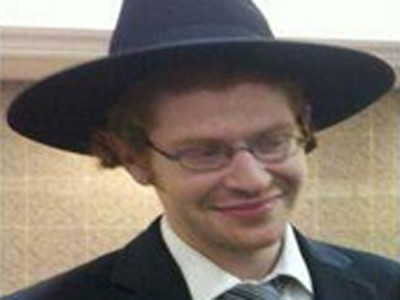
On Friday, August 22, Aaron Sofer was taking a shortcut through the Jerusalem Forest with his friend. The two became separated when his friend wanted to try hiking up a hill, and later that evening when the friend returned home, he discovered that Aaron was missing. When I came online Saturday night, I learned about Aaron’s disappearance on Facebook when somebody asked about all the vehicles they saw over Shabbat. It took almost another 24 hours before I heard anything else about Aaron, when one of my rabbis started asking why nobody was talking about his disappearance.
My rabbi’s question is an interesting one. Earlier this summer, when the three boys went missing, news about them hit the Internet like a tidal wave. Since then, people have been constantly posting about events in Israel, Gaza, and the entire Middle East. When an Israeli soldier went missing, everyone began to panic. When a 4 year old boy was killed by a rocket, many gathered online to mourn. Yet, when Aaron Sofer disappeared, in a place where an atrocity had occurred earlier in the summer, there is little more than silence. Why is this?
Aaron Sofer is 23. He isn’t a boy, he’s not our son, or our little brother. This has been bothering me for some time, but it seems that the lives of children are valued more than those who are older. When teenagers, or especially young children, are being threatened, their innocence and potential future loom large. Does that mean I am no longer as valuable because I’ve been around for over 18 years? Judaism is filled with stories of those who do not start on the right path until they are much older—the famed Rabbi Akiva did not even know how to even read until he was 40 years old. Everyone, no matter what age, or gender, has potential for greatness. We need to remember this, and that when something terrible happens to a person it is just as much a tragedy if they are 23, or if they are 16.
We’re all tired of bad news. This is what originally kept me from discussing Aaron Sofer. The news and social media storms that have hit us over the last few months have left us tired. Everyone is sick of hearing about Israel. We all want peace, but we also just want to give ourselves a break from the heartbreak, not to mention all the yelling and arguing with our friends. After the three boys, the murdered Arab teen, the missing soldiers, and all the many other unfortunate events of this conflict, Aaron Sofer has become just another chapter in a series of unfortunate events that fewer and fewer people are taking an interest in. I can’t really argue against this, I understand the emotional drain we’ve all been feeling, but is that a valid excuse for just ignoring the situation and giving up on a person?
Social media did not help the three boys. Not only do we feel emotionally drained, but it feels almost pointless after their death. All across the world people were discussing the missing boys, and praying for their safety. Yet, after weeks of joining together, we discovered that they had been murdered almost immediately after being kidnapped. Such a blow— our prayers, and everything else we did for them felt completely vain. We did all that, and they were already gone. We forget that each situation is different.
Finally, Aaron Sofer is Haredi. I know, I said it. None of us want to admit it, we’d like to think that we are better than that, but the fact that Aaron is Haredi does indeed prevent some people from caring. Even though they were Orthodox, the three boys looked like us, we could relate to them. Aaron wears a strange black hat and suit, he’s a much harder of a person to relate to, to call our son or brother. Do I even need to tell you why this is the wrong way of thinking?
Now that I’ve said why we aren’t talking about Aaron Sofer, let’s talk about why we should.
Social media can physically help. We are seeing this already. As more people discuss Aaron Sofer, more people are volunteering to join in the effort to find him. You’re posts about Aaron, might lead to motivating the one person to volunteer who finds him, or help a stranger identify him. It seems silly, right? Who cares if it’s silly, or a stretch if it can save a life?
Prayer can’t hurt. Personally, I believe in the power of prayer, and that it really can help Aaron Sofer. With that said, I understand some people aren’t religious, or feel a bit disillusioned after the situation with the three boys. Once again, it comes down to saving a life. It might not work, but if there is even the smallest chance of it doing something, shouldn’t you give it a try? Who is hurt by your prayers? Nobody. Who is saved? Possibly Aaron Sofer. Pray, and ask others to join you in it.
It shows solidarity. This is the least important of the reasons why you should be talking about Aaron Sofer, but it is still absolutely important. The fact is, when the three boys went missing everyone, Reform to Haredi, was uniting in support and prayer for them. It was a beautiful thing seeing the whole Jewish world united, even if for such a terrible event. Now, when a young Haredi person has gone missing. It’s almost like a test, and sadly we’re failing. When nobody says anything, what message does that convey? Besides insinuating that a Haredi life is somehow less valuable than a non-Haredi one, it perpetuates the divisiveness and Us and Them mentality from which the Jewish community suffers. It may be shallow reasoning, but acting in solidarity during this time can help build bridges for the future.
David Gutbezahl is a recent graduate of Gratz College.

